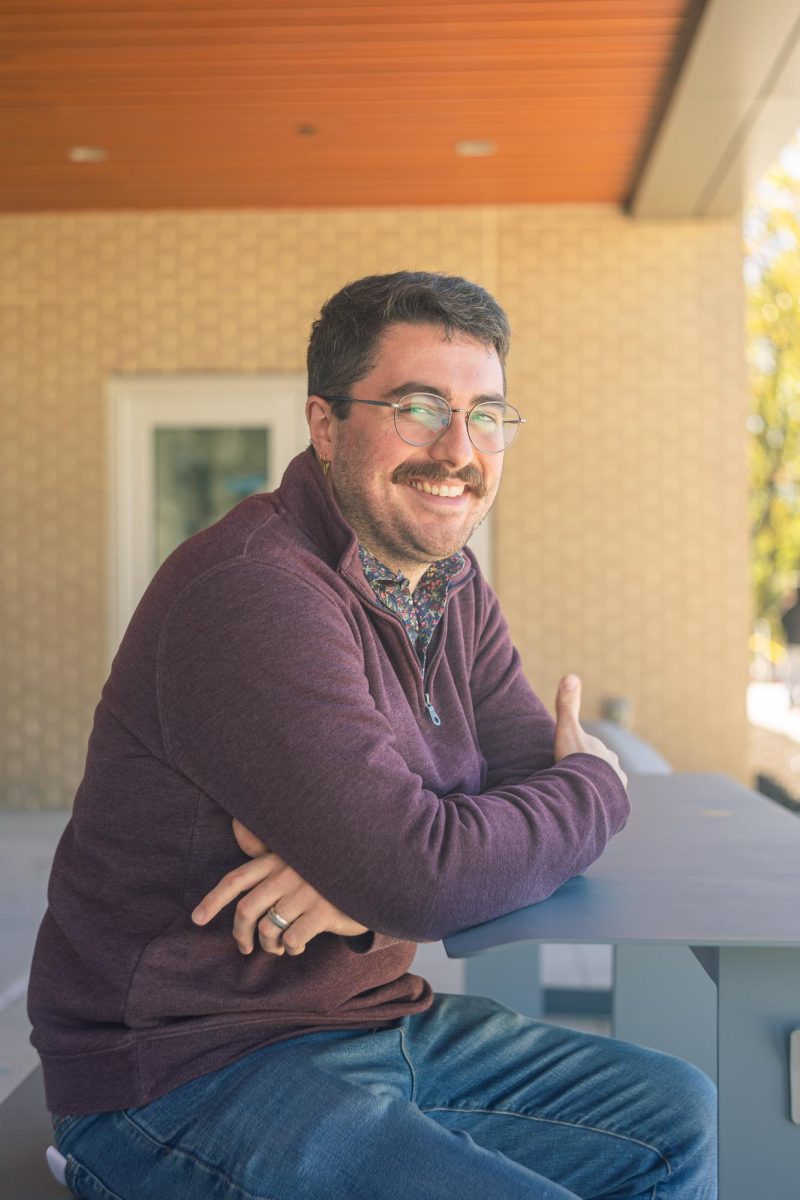
Moravian University’s theater has existed for over 275 years. However, when renovations to the HUB began in January, the Arena Theatre will be demolished and the Moravian Theatre Company will no longer have a dedicated home on campus.
As far back as the late 1780s, theatre was a co-curricular activity at the Moravian Girl’s School on today’s south campus, which later became the Moravian Female Seminary, the forerunner of Moravian University. In the 1890s, the Female Seminary then created a theater department, known as the Expression Department.
Around the same time, the separate Men’s Seminary, on the present-day north campus, began hosting student-initiated theatre to raise funds for the school’s athletic programs.
When the men’s and women’s seminaries combined in 1955 to form Moravian College, their respective theatre organizations likewise combined and were renamed the Blackfriars. Their productions were held in Prosser Auditorium, a multi-purpose venue.
When Dr. Jack Ramsey, professor of English and drama at Moravian, assumed leadership of the theatre in 1970, he rallied for a physical space dedicated solely to theatre productions. In 1981, he got his wish: Moravian created the Arena Theatre on the lower level of the HUB.
When the Arena Theatre opened that year, the Blackfriars were renamed the Moravian University Theater Company, which operates to this day.
Dr. Ramsey, belovingly nicknamed “Doc” by students and faculty, hosted over 105 productions during his 38-year tenure, exposing the Moravian community to all genres of theatre and inspiring many of his students to follow a professional career in stage productions, acting, and singing. His productions ranged from Shakespeare and musicals to Greek tragedies and comedies.
Following Dr. Ramsey’s retirement in 2007, the English Department created a full-time faculty position for a theatre professor, which was later assumed by Professor Christopher Shorr, associate professor of theater arts.
“It seemed like all the work that had been happening to build things up was really on the right track,” Professor Shorr said. “We had a theatre space, a [theatre] professor, and it looked like it was going on the right track.”
When he first arrived at Moravian, Professor Shorr made some changes to Arena Theatre, such as replacing the floor and painting the walls black to make the space feel more comfortable and safe for students. He wanted the space to function as a laboratory for students to feel safe to experiment with acting without the pressure of a pristine stage.
“My focus has been encouraging students to do their own work, write plays, direct plays, take things from idea to fruition and that allowed us to do a lot more,” he said.
Moravian does not offer a major in theatre, although Schorr has worked to create a minor and a graduate program in performance creation, partnering with Touchstone Theatre, a local not-for-profit organization dedicated to the creation of original work, founded in 1981.
Shorr worked to bring theatre to the University’s former InFocus program.
“Theatre productions were tied to the program for 10 years,” said Shorr. “I would select or encourage students to select a play that supported that theme or issues on campus.”
When Moravian begins renovations for the HUB in January, the Moravian Theatre Company will lose the dedicated theatre space that Dr. Ramsey fought for more than four decades ago. It’s unclear when – and if – a new space for theatre will replace it.
However, students and faculty have remained positive in light of this news. Despite the destruction of the Arena Theatre, stage manager Emily Kave ‘23 relayed that there is more interest in theatre this year at Moravian than she’s ever seen before.
“I am very disappointed in Moravian for doing something like this … [But] while times are hard, there is still a decent amount of interest in theater,” she said. “We had more people at our first theater company-wide meeting this year than I have seen since my freshman year of college,”
Schorr feels that enthusiasm, too. And it inspires him. “Without [Arena Theatre], what theatre looks like will be different,” he said. “But I have faith that the students will keep something going, and I’m committed to helping them.”













